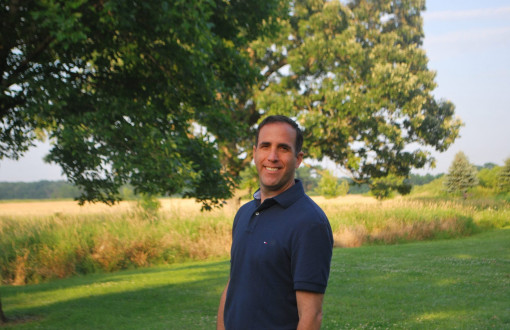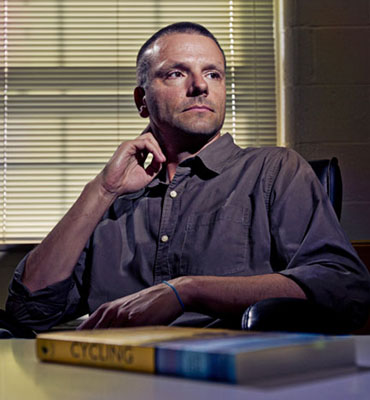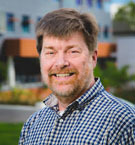Instructions for Submitting a Paper Proposal
Purpose: For scholars interested in ethics, theology, and philosophy work on ‘marriage and family’ topics, we invite carefully-honed papers that advances discussion of any of the below areas of the Potential Paper Topics.
If you are interested, please contact our project coordinator and editor Michael Austin (info below). Michael is seeking to coordinate all potential contributors and their topics for this endeavor. When you pitch your possible contribution, please provide the following:
- Your name, institution and contact info.
- Title and description of your proposal (e.g., 100 words).
- Reasons for how your contribution will help advance the purpose of this project.
We are looking for papers that a) argue for a perspective on a marriage and family topic, or b) casts a vision for more work to be done in a particular area or c) offers a literature review and assess what seems to be ‘under-developed’ work.
Length: 1,500 to 2,000 total words (minimum). You are welcome to work with the Project Editor on length issues.
Deadline: TBD by the project coordinator
Project Coordinator and Editor
Michael Austin
Eastern Kentucky University
Department of Philosophy
mike.austin@eku.edu
Priority will be given to those papers that offer a perspective on questions and problems that especially hone in on what have been ‘under-represented’ in this theme for Christian philosophers. Please seriously consider developing paper topics with the below examples in mind. We encourage papers that will be of interest not only to the ethics scholar but also to the epistemologist, metaphysician, theologian, etc.
Contributions
Find this Project interesting? See these other EPS Web Projects
Potential Paper Topics
Developed by Michael Austin (Eastern Kentucky University) & Joe Gorra (Veritas Life Center).
Much has been addressed by Christian philosophers on questions related to bioethics, reproductive technologies, and so on. But some under-represented ‘marriage and family’ topics include the following:
Philosophy and Interdisciplinary Issues in Marriage and Family Studies: If philosophy and theology are understood as ‘second-order’ disciplines, how might they contribute to the work and contributions of ‘first-order’ disciplines like sociology, psychology, economics, cultural studies and their accounts of marriage and family? How might ideas and images shaped by these disciplines enable and clarify the work done by philosophers and theologians? We strongly encourage contributions from Christian philosophers who have understanding of the ‘meta-‘ issues involved with philosophy’s contribution to interdisciplinary discussions. We also encourage Christian non-philosophers to propose papers that are attentive to philosophical issues and concepts that converge with their discipline and areas of expertise. Co-authored proposals from philosophy and non-philosophy scholars are welcomed.
Papers may wish to interact with this literature:
Ethics of religious upbringing of children: how to share, model, and influence our children for Christ in ways that honor God and respect them as well. Defenses of the morality of a Christian upbringing in the face of challenges at a popular level (e.g. Dawkins and “child abuse” claims) as well as at the scholarly level. How might philosophical accounts of ‘harm’ and ‘interest’ (of children, parents, etc) contribute to clarifying what is often a legally vague idea of ‘Acting in the best interests of the child.’
Papers may wish to interact with this literature:
- For treatment of justice and political philosophy issues, see Matthew Clayton,Justice and Legitimacy in Upbringing (Oxford University Press, 2006); Susan Moller Okin, “Political Liberalism, Justice, and Gender,” Ethics 105, no. 1 (October 1994): 23–43.
- For educational treatments, see Joe Coleman,”School Choice, Diversity, and a Life of One’s Own,” Theory and Research in Education 1, no. 1 (March 2003): 101–120.
- Hugh LaFollette, “Freedom of Religion and Children.” Public Affairs Quarterly, 1989, 75-87.
- William B. Irvine, Doing Right by Children (St. Paul, MN: Paragon House Publishers, 2001)
- Colin McLeod, “Shaping Children’s Convictions,” Theory and Research in Education1 (2003): 315-330.
Metaphysics of the Family: What is a family? What are the necessary and sufficient conditions for a family, on Christian theism? What biblical, theological, and philosophical data are relevant to this question? How important is genetics or biology to this definition? Or what value is there with respect to a biological connection of some sort between parent and child? Who is a father or a mother? How might a vocational account differ from strictly a biological account? How might we reflect upon ‘step-parenting,’ ‘foster-care parenting’ and ‘surrogate parenting’ in light of Christian theological accounts of adoption and hospitality of God? How might we think about the nature of parenting and family in light of the genetic modification of children and the technological possibilities of creating babies from three or more parents? And what implications do our answers to these questions have for the current cultural debates about same-sex marriage and same-sex parenting? From a political philosophy standpoint, what are strong, non-religious arguments for why a ‘secular state’ has an interest in protecting the family?
Papers may wish to interact with this literature:
- For exemplary theological and philosophical accounts of love in various dimensions, see Dietrich von Hildebrand, The Nature of Love (St. Augustine Press, 2009)
- For historical treatments of marriage as an institution, see John Witte, From Sacrament to Contract, 2nd edition (Westminster John Knox, 2012); The Western Case for Monogamy Over Polygamy (Cambridge, 2015).
- For philosophical and social science accounts, see the Summer 2014 (vol. 28, no. 3) issue of The Family in America: A Journal of Public Policy, especially these articles: Michael Pakaluk, “The Family the Origin of Political Society”; Edwin E. Gantt, Richard N. Williams, and Emily Reynolds, “Meaning and Ontology in Family Science”; Sarah-Vaughan Brakman, “Who is a Parent?”
- For theological accounts of the family, see Joseph Atkinson, Biblical and Theological Foundations of the Family: The Domestic Church (Catholic University Press of America, 2014); Herman Bavinck, The Christian Family, ed. by Stephen Grabil and translated by Nelson Kloosterman (Christian’s Library Press, 2012; Adrian Thatcher, Theology and Families (Wiley-Blackwell, 2007); Marc Cardinal Ouellet, Divine Likeness: Toward a Trinitarian Anthropology of the Family(Eerdmans, 2006).
Metaphysical and Epistemological issues in Gender, Sexuality and Identity: What are necessary and sufficient conditions for defining ‘gender,’ ‘sexuality’ and ‘human identity’? On what basis are such distinctions drawn? In what sense and on what basis are these terms considered social constructions? ‘Self-identification’ of one’s experience as x, y, or z often populates studies in this area. Is this knowledge from a first-person perspective? Is it simply one’s construal? How might we understand the ‘authority’ of such claims relative to the authority of tradition, history, social institutions, etc.
Papers may wish to interact with this literature:
- For theologies gender, see Adrian Thatcher, The Oxford Handbook of Theology, Sexuality, and Gender (Oxford, 2014); Sheila Briggs and Mary McClintock Fulkerson (eds), The Oxford Handbook of Feminist Theology (Oxford, 2012); Sarah Coakley, Powers and Submissions: Spirituality, Philosophy and Gender (Wiley-Blackwell, 2002); Christopher Roberts, Creation and Covenant: The Significance of Sexual Difference in the Moral Theology of Marriage (Bloomsbury T&T Clark, 2008).
- For recent work on the metaphysics and gender issues, especially from an ‘essentialist’ view, see Charlotte Witt, The Metaphysics of Gender (OUP, 2011);
- Recent work on gender at the intersection of biology and sociology includes the edited compilation from W. Brad Wilcox and Kathleen Kovner Kline (eds), Gender and Parenthood: Biological and Social Scientific Perspectives (Columbia University Press, 2013).
Moral-Spiritual Formation of the Family: How does this occur, for both parents and children? What theological and philosophical resources can we bring to bear on this? How can parents be intentional about such formation for themselves and their children in the family? What does the Bible have to say that is relevant to such questions? And what do psychology, sociology, and other disciplines have to contribute to this? Is virtue formation and spiritual maturation in a family interconnected with being the roles of a mother and a father? What is the role of ecclesial communities in such matters of formation? Does the ‘Christian family’ exist primarily for the interests of the ‘household of faith’?
Papers may wish to interact with this literature:
- For ‘ethics and family’ treatments, see Julie Rubio, Family Ethics: Practices for Christians (Georgetown University Press, 2010); Michael W. Austin, Wise Stewards: Philosophical Foundations of Christian Parenting (Kregel Academic, 2009).
- For some work on the vocation of the family, see Gene Edward Veith and Mary J. Moerbe, Family Vocation (Crossway, 2012).
- For recent article examples on philosophy and spiritual formation integration, see from the (Fall 2014) Journal of Spiritual Formation and Soul Care, Steve Porter, “A Call to Philosophy and Spiritual Formation” (248-257), and “Philosophy and Spiritual Formation: From Christian Faith to Christian Philosophy” (258-269); and also from JSFSC’s (Spring 2014), see Brian Brock, “Discipleship as Living with God, or Wayfinding and Scripture,” 22-34.
Non-Religious Arguments for Marriage and the Family: What are the opportunities and limitations for using ‘natural moral law arguments’ in public and pluralistic contexts? Are such arguments mostly useful for ‘consoling the faithful’? How are ‘secularists’ compelled by such arguments, if they are compelled at all? How might such arguments be retooled in light of changing plausibility structures in Western societies, which increasingly view Christian accounts of marriage and family to be contestable and not believable? How might sociological, psychological and economic reasons and evidences be more persuasive to most secularists than natural law arguments?
Papers may wish to interact with this literature:
- For some cultural and philosophical contextualizing, see James K.A. Smith, How (Not) to Be Secular (Eerdmans, 2014); Angus Menuge (ed.), Legitimizing Human Rights: Secular and Religious Perspectives (Ashgate, 2013); Mary Eberstadt, How the West Really Lost God: A New Theory of Secularization (Templeton Press, 2013); see also the “Does Religious Pluralism Require Secularism?” theme in theHedgehog Review (Fall 2010).
- For some moral theology explorations, see Robert Song and Brent Waters (eds.),The Authority of the Gospel: Explorations in Moral and Political Theology in Honor of Oliver O’Donovan (Eerdmans, 2015) and Oliver O’Donovan, Resurrection and the Moral Order: An Outline for Evangelical Ethics (Eerdmans: 1994); Jonathan Burnside, God, Justice and Society: Aspects of Law and Legality in the Bible(Oxford University Press, 2010).
- Some recent Christian accounts of moral knowledge include: R. Scott Smith, In Search of Moral Knowledge: Overcoming the Fact-Value Dichotomy (IVP Academic, 2014); David Baggett and Jerry Walls, Good God: The Theistic Foundations of Morality (OUP, 2011); Dallas Willard, Knowing Christ Today(HarperOne, 2009);
- For discussions assessing use of natural moral law arguments, see Michael Gurney, “Same-Sex Marriage and the Church: The Public Relevance of Theistic Morality,” Philosophia Christi (Winter 2014): 395-406; David Bently Hart, “Is, Ought, and Nature’s Laws,” First Things (March 2013) and “Nature Loves to Hide” (May 1, 2013), and “Purpose and Function” (August 2013) See responses from Ed Feserhere and then here; R.J. Snell responses here and here and then his book, The Perspective of Law: Natural Law in a New Mode (Pickwick Publications, 2014); Dylan Pahman response here. Also note R.J. Snell, “Is the Natural Law Persuasive?” PublicDiscourse.com (April 18, 2012); Samuel Gregg, “Conservatives, America, and Natural Law,” PublicDiscourse.com (October 22, 2014).
Moral Vision of Flourishing ‘Families’ in a Pluralistic Society: Culturally speaking, the experience of marriage and family is no longer a homogenous kind of experience in Western societies. Increasingly, we have ‘pluralist’ accounts recognized by law, legitimized by cultural pressures, and encouraged by various social institutions.
Drawing from Christian Social Thought, how might Christians envision a society that attends to our differences, even contradictions, regarding marriage and family flourishing? Is such a society possible? What conditions or values should shape how we are bound together? How might Christians think societally about such issues like ‘gay adoption,’ government assistance for unwed mothers, illegal immigration and deportation of parents, youth incarceration and single-parent homes, etc? What society should be built by Christian thought and leadership influence given the particularities of our cultural moment? We encourage constructive responses that seek to minister to each person made in the image of God, and seeks to uphold the social order.
Papers may wish to interact with this literature:
- On some of the sociological literature from family studies, see the “Parenting in America” theme from The Hedgehog Review (Fall 2013); the 2012 report, “Culture of American Families” from the Institute for Advanced Studies in Culture; and marriage and family reports from Pew Research: Social and Demographic Trends.
- For sociological-philosophical treatments of issues related to modernity and pluralism, see Greg Forster and Anthony Bradley (eds.), John Rawls and Christian Social Engagement: Justice as Unfairness (Lexington Books, 2014); Peter L. Berger, The Many Altars of Modernity: Toward a Paradigm for Religion in a Pluralist Age (De Gruyter, 2014); Yuval Levin, The Great Debate: Edmund Burke, Thomas Paine, and the Birth of Right and Left (Basic Books, 2013); see also his essay,“Taking the Long Way: Disciplines of the Soul are the Basis of a Liberal Society,”First Things (October 2014); James Davison Hunter, To Change the World: The Iron, Tragedy, and Possibility of Christianity in the Late Modern Age (OUP, 2010).
- For theological treatments attentive to pluralism and public life issues, see Andy Crouch, Playing God: Redeeming the Gift of Power (InterVarsity Press, 2013; Jonathan Chaplin, “Rejecting Neutrality, Respecting Diversity: From ‘Liberal Pluralism’ to ‘Christian Pluralism,'” Christian Scholar’s Review 35:2 (Winter 2006): 143-175; Kenneth Grasso and Cecilia Rodriquez Castillo, Theology and Public Life: Four Conversations (Lexington Books, 2012); Steve Garber, Visions of Vocation: Common Grace for the Common Good (InterVarsity Press, 2014); Richard Mouw,Pluralisms and Horizons: An Essay in Christian Public Philosophy (Eerdmans, 1993).
‘Health,’ ‘Well-Being,’ and ‘Holiness’ of Marriage and Family: Innumerable scientific studies have been written about the health and happiness of individuals, their family and affects on society. ‘Health,’ though, is usually given a reductive account: a scientific or medical question about an organism. Similarly, ‘happiness studies’ usually assume a psychological account about someone’s mental outlook on life. Is there a thicker account of ‘health’ and ‘well-being’ that includes but is not reduced to the hard or soft sciences? Moreover, Christians have historically understood marriage and family as sacred or holy, set apart for the glory and purposes of God’s work in the world. Is there ‘health’ and ‘well-being’ entailed by that sacred, perhaps even ‘sacramental vision’ of marriage and family? How might we recapture a more holistic understanding of eudaimonia as a collective, relational phenomenon, in family, church and state.
Papers may wish to interact with this literature:
- For theological reflection about ‘Health,’ see the entire themed issue from Communio: International Catholic Review (Fall 2014), and see also Melanie Dobson’s Health as a Virtue: Thomas Aquinas and the Practice of Habits of Health(Pickwick Publications, 2014).
- For some sociological understanding on ‘state of family’ and culture, see the many articles from The Family in America: A Journal of Public Policy, and the extensive research from W. Bradley Wilcox, including his Institute for Family Studies.
- For constructive theological or philosophical accounts related to ‘Well-Being’, see David Gushee, The Sacredness of Human Life (Eerdmans, 2014); Stewart Goetz,The Purpose of Life: A Theistic Perspective (Bloomsbury Academic, 2012); John Schneider, The Good of Affluence: Seeking God in a Culture of Wealth (Eerdmans, 2002); John Bolt, Economic Shalom: A Reformed Primer on Faith, Work, and Human Flourishing (Christian Library Press, 2013).
Please consider becoming a regular annual or monthly financial partner with the Evangelical Philosophical Society in order to expand its reach, support its members, and be a credible presence of Christ-shaped philosophical interests in the academy and into the wider culture!


 Scholarship and Character as a Christian Academic
Scholarship and Character as a Christian Academic
 A Perspective on Perspectival Factualism: Response to Paul Gould
A Perspective on Perspectival Factualism: Response to Paul Gould
 Further Reflections on Academic Faithfulness: A Reply to Friendly Critics
Further Reflections on Academic Faithfulness: A Reply to Friendly Critics